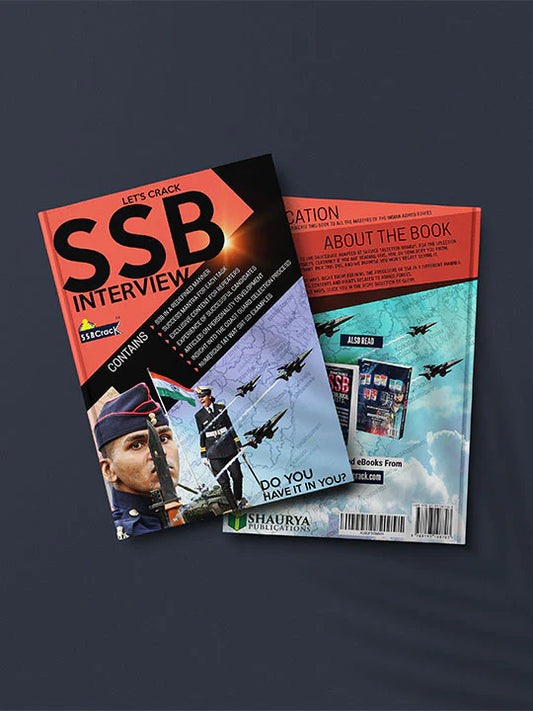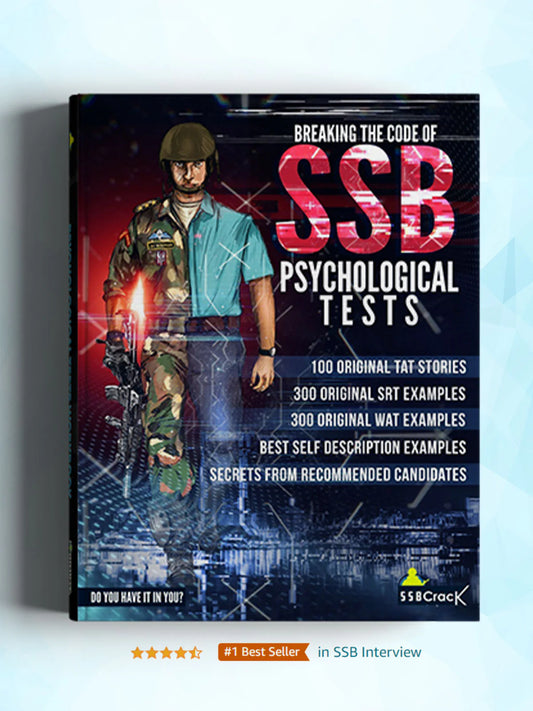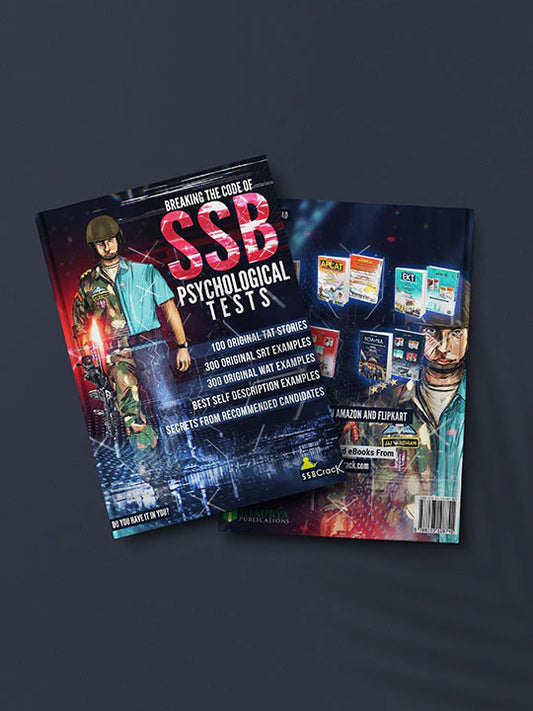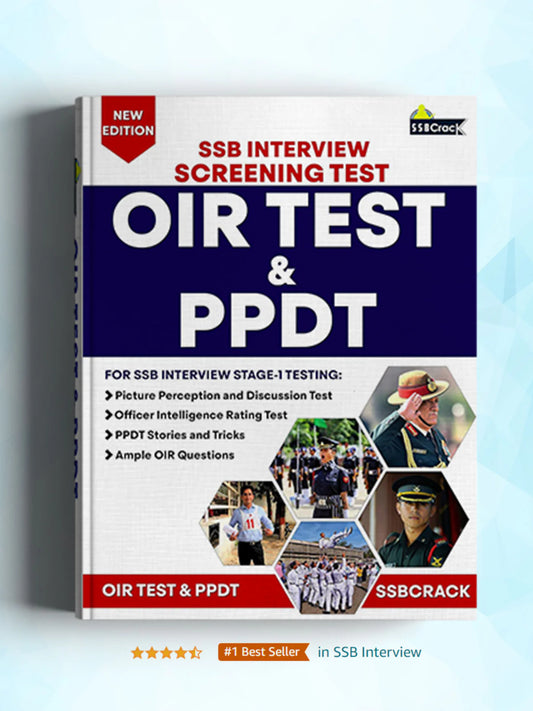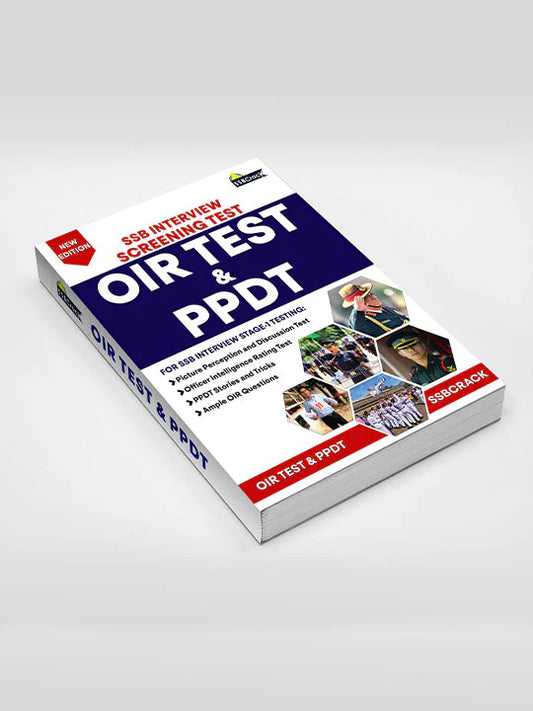How to Prepare for SSB Interview in 30 Days: A Step-by-Step Plan

Introduction
Preparing for the Services Selection Board (SSB) interview can be an overwhelming experience, particularly for aspirants eager to mark their place in the Indian Armed Forces. The SSB interview, a rigorous five-day selection process, aims to assess candidates on multiple fronts including psychological and physical attributes, leadership potential, and tactical knowledge. Whether you are a recent graduate, a working professional, or just someone keen to serve the nation, understanding the nuances of the SSB interview is essential for success.
The significance of every hour spent preparing cannot be understated. With a well-structured plan, candidates can harness and showcase their potential. For those feeling daunted, this article outlines a comprehensive 30-day step-by-step framework designed to maximize your preparation and enhance your chances of success. Engaging with this guide will not only familiarize you with the SSB process but will also equip you with interactive tools to manifest your best self in the interview.
SSB Interview Books Power Pack: 4 Must Read Books for Defence Aspirants
Rs. 1,760.00
Sale price
Rs. 1,399.00
Let's Crack SSB Interview Book [Paperback]
Rs. 390.00
Sale price
Rs. 360.00
Breaking The Code of SSB Psychological Tests Book - SSB Interview (TAT/WAT/SRT/SD)
Rs. 390.00
Sale price
Rs. 360.00
OIR Test & PPDT Book - SSB Interview Screening Test - Stage 1 Testing
Rs. 490.00
Sale price
Rs. 375.00
The Services Selection Board was established during World War II in response to the pressing need for a systematic approach to recruit officers for the British Indian Army. Originally a British military institution, it underwent significant transformation post-independence and has since evolved into a cornerstone of India's officer selection process. The objective remains unchanged: to identify candidates who possess not only the educational qualifications but also the inherent qualities of leadership, adaptability, and moral fortitude. Over the years, the SSB has adopted various psychological tests and group tasks, emphasizing the importance of a holistic assessment.
Understanding the SSB Interview
The SSB interview comprises several components, each designed to test different aspects of a candidate's personality:
- Screening Test: Generally held on the first day, this includes the Officer Intelligence Rating (OIR) Test and Picture Perception and Discussion Test (PPDT). You'll be assessed on logical reasoning and your ability to analyze and discuss a scenario.
- Psychological Tests: Over the next two days, candidates undergo various psychological tests, including the Thematic Apperception Test (TAT), Word Association Test (WAT), and Situation Reaction Test (SRT). These are designed to uncover your cognitive and emotional profile.
- Group Tasks: Following the psychological tests, candidates engage in various group activities, emphasizing teamwork, leadership, and problem-solving abilities. This could include group discussions, group planning exercises, and individual task challenges.
- Personal Interview: This is a crucial stage where the interview board assesses your motivation, aspirations, and fit for a career in Defence.
- Conference: The final day sees a cumulative assessment of your performance over the past days, leading to the eventual selection.
Understanding the structure allows you to strategize effectively during your preparation.
30-Day Step-by-Step Preparation Plan
Week 1: Foundation Building
Day 1-3: Familiarization
- Research the SSB Process: Begin with studying the SSB process in detail. Use resources like SSBCrack and SSBCrackExams to gain insights from previous candidates. Read firsthand accounts to understand expectations versus reality.
- Understand the Syllabus: Familiarize yourself with the types of tests you'll encounter. Focus initially on the OIR and PPDT sections since they form the foundation for further assessment.
Day 4-7: Skill Development
- Practice Logical Reasoning: Engage with sample papers and online tests. Resources like SSBCrack's books on reasoning skills can be invaluable. Aim to solve at least 20 questions daily.
- Picture Perception: Use images from online resources to practice creating stories. The aim is to convey emotions and narratives effectively in constrained timeframes.
Week 2: Psychological Preparedness
Day 8-10: Insight into Psychological Tests
- Understand Psychological Test Formats: Learn how TAT, WAT, and SRT work. Practice with templates available from SSBCrackExams to craft compelling and coherent narratives.
Day 11-14: Expanding Psychological Skills
- Daily Practice Sessions: Dedicate time each day to practice writing responses to WAT (e.g., 15 words), structuring TAT stories, and formulating well-rounded SRT answers.
- Emotional Intelligence Development: Engaging in group discussions with peers can help foster teamwork and communication skills. Reflect on scenarios where teamwork can lead to success or failure.
Week 3: Group Dynamics and Leadership
Day 15-18: Competitive Edge in Group Tasks
- Group Discussions: Find peers to conduct mock group discussions. Ensure that they cover a variety of current affairs and ethical scenarios to test your argumentative skills.
- Team Workshops: Engage in group planning exercises. SSBCrack’s mock group tasks could offer structured guidelines.
Day 19-21: Leadership Skills
- Understanding Leadership Styles: Read literature on leadership, especially those involving military leadership. Books like "Leaders Eat Last" by Simon Sinek can be insightful.
- Mock Situational Tasks: Conduct mock situations where you have to lead a group through a particular issue. Focus on active listening, conflict resolution, and decision-making.
Week 4: Final Preparations and Personal Interview
Day 22-25: Mock Interviews and Feedback
- Mock Interviews: Conduct mock interviews with friends or mentors. Use questions from previous SSB candidates and prepare detailed responses about your background and motivations.
- Self-reflection: Record these mock sessions to critique your performance on body language, clarity of speech, and confidence.
Day 26-28: Refining Knowledge Base
- Current Affairs: Dedicate time each day to read newspapers, especially focusing on defence-related news, political changes, and social issues relevant to India. Consider resources like Rajya Sabha TV for broader insights.
- Ethical Scenarios: Prepare for situational questions that evaluate your ethical positioning and moral reasoning.
Day 29: Final Review
- Comprehensive Revision: Go over all the materials you've studied and practiced. Ensure you feel comfortable with each aspect of the SSB process.
Day 30: Mental Preparation and Relaxation
- Mindfulness Techniques: Engage in stress-relief exercises such as yoga or meditation. Focus on positive affirmations that bolster your self-confidence.
- Prepare Logistically: Ensure that all documents and materials are in place for the interview day. Dress appropriately and get a good night's sleep.
Case Studies and Real-world Applications
Numerous candidates have attested to the efficacy of structured preparation for the SSB. Take, for instance, Vikram, who connected with SSBCrackExams’ comprehensive eBook on SSB preparation. Because he committed to practicing thoughts and reflections through TAT, Vikram noted drastic improvements in his psychological test scores.
Similarly, Priya, a candidate with no prior leadership experience, utilized mock group tasks offered by SSBCrack. This practice enabled her to explore her leadership potential authentically. Her engagement not only prepared her for the interview but also built lifelong skills in communication and teamwork, critical for any prospective officer.
Statistical Data and Research Insights
According to recent surveys, the SSB has reported that a staggering 70% of candidates who excelled in psychological tests were those who engaged in systematic and well-planned preparation. A study conducted by defence analysts indicates that preparation methods significantly influence candidate selection rates, with structured preparation yielding a 25% higher success rate.
Research from leading psychologists underscores the importance of both mental and emotional readiness when facing assessments that scrutinize personal qualities such as resilience, determination, and leadership skills. A candidate's confidence, often nurtured through deliberate practice, plays a pivotal role in their overall performance.
Challenges and Solutions
Challenges
- Information Overload: Many candidates find it daunting to sift through vast resources available online, creating confusion about what is essential for preparation.
- Time Management: Balancing preparation with other commitments can hinder consistent practice.
- Psychological Strain: The SSB interview's high stakes can contribute to anxiety and self-doubt.
Solutions
- Curated Resources: Use structured offerings from SSBCrack to filter through necessary study materials and practice resources.
- Dedicated Study Schedule: Allocate specific hours each week solely for preparation. Break study time into smaller, manageable tasks to avoid burnout.
- Mental Health Strategies: Employ methods such as positive visualization and mindfulness techniques to tackle anxiety and stress effectively.
Future Trends and Predictions
As we continue into an era dominated by technological advancements, it’s likely that the SSB process will also evolve to incorporate modern assessment tools such as online situational judgment tests and virtual group discussions. The rise in artificial intelligence may lead to more adaptive learning environments where personalized feedback will enhance preparation experiences.
Being well-versed with emerging trends can prepare candidates for higher standards of assessment, ensuring that they remain ahead in the competitive landscape.
Conclusion
The Services Selection Board interview is not just a test of knowledge but a holistic evaluation of personality. Preparing for it requires a structured approach, consistent effort, and mental fortitude. By adhering to this 30-day plan, you'll not only enhance your chances of success but also cultivate vital life skills.
Choosing quality resources such as those provided by SSBCrack and SSBCrackExams can be instrumental in this journey. Approach preparation with conviction, engage persistently, and remember: every challenge is an opportunity to learn.
As you stand on the brink of this significant phase in your life, visualize your success. Prepare diligently, elevate your confidence, and prepare to serve your nation proudly. The journey begins now—embrace it!
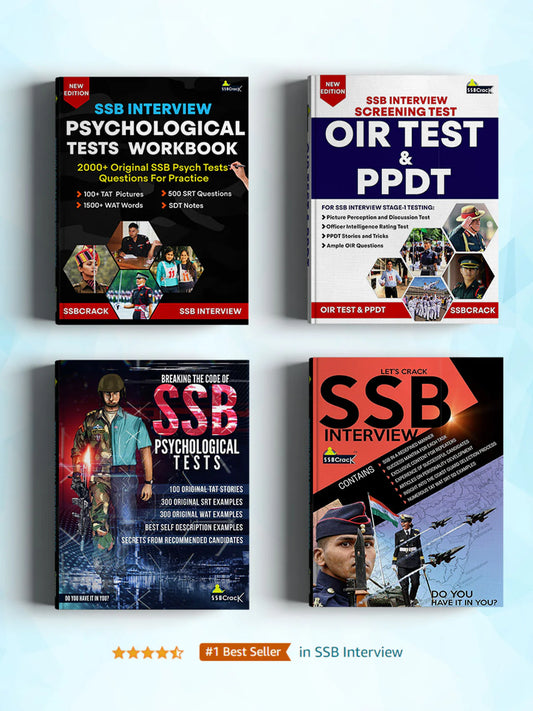
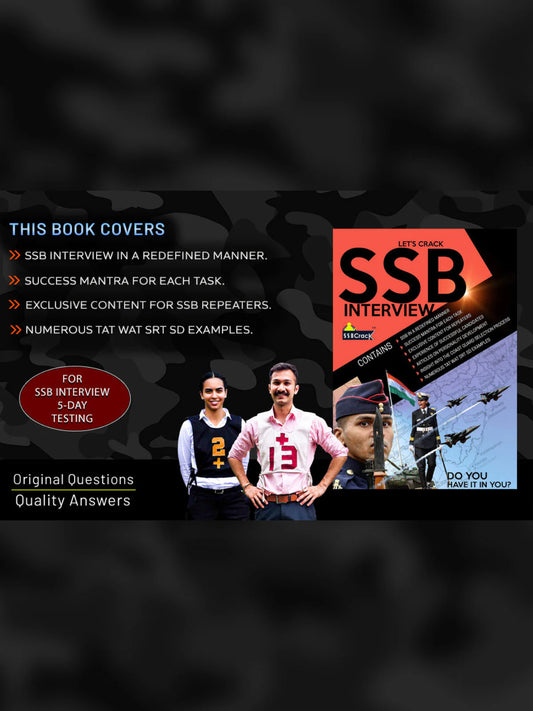
![Let's Crack SSB Interview Book [Paperback]](http://shop.ssbcrack.com/cdn/shop/files/ssb-books.webp?v=1736351621&width=533)
